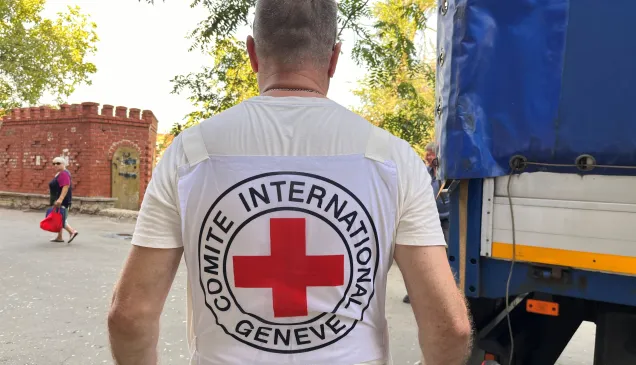Hunger strikes in prisons: The ICRC's position
In the case of hunger strikes in prisons, the role of the ICRC, as a humanitarian organization, is to strive to ensure that the treatment detainees receive and the conditions in which they are held are humane and meet international standards, and that the safeguards and protections afforded detainees are respected.
What can the ICRC do when detainees go on hunger strike?
When the ICRC visits a place of detention where a hunger strike is in progress, it carefully assesses the situation to understand the issue(s) at stake through private meetings with the detainees, and discussions with the prison managers, custodial staff and health staff involved. The ICRC neither judges the merits or legitimacy of hunger strikes as a means of protest, nor acts as a mediator between the authorities and the hunger strikers.
While urging both the detaining authority and the hunger strikers to resolve their issue(s) without loss of life, the ICRC strives to ensure that the hunger strikers receive proper care and treatment, and that their dignity, humanity and any choices they freely make – for example, to continue or to abandon the hunger strike – are respected.
What is the role of an ICRC medical doctor during a visit to detainees on hunger strike?
ICRC physicians have a specific and crucial role to play: to assess the hunger strikers' medical condition, and to ensure that they are refusing food voluntarily and in full knowledge of the possible consequences of fasting on health and life. The ICRC doctor also attempts to make sure the hunger strikers are not suffering from mental illness, for if they were, that would call into question the strikers' capacity to make a voluntary and fully informed choice to refuse nourishment. In addition, the ICRC physician monitors the medical condition of the detainees involved, and the care that they receive. Through dialogue with health staff managing the hunger strikers, the ICRC physician aims to ensure that the medical care being provided meets current technical and ethical standards, especially regarding critical health issues known to arise from prolonged fasting or, should a hunger striker choose to stop his protest, from resuming nourishment after a prolonged fast. In particular, the ICRC doctor aims to ensure that medical staff are not involved in "forced feeding" of inmates, which would constitute a gross violation of medical ethics.
The visit of an ICRC physician to a detainee on hunger strike does not substitute the role of the treating physician, who undertakes the delivery and coordination of comprehensive care for patients. Moreover, such visits should not impact the ability of the detainee to receive independent medical visits. ICRC visits must not have the effect of depriving detainees of the benefits to which they are entitled under IHL, or from exercising their rights under other relevant bodies of law.
What is the ICRC's position on the forced feeding of detainees?
The ICRC is opposed to forced feeding or forced treatment; it is essential that the detainees' choices be respected and their human dignity preserved. The ICRC's position on this issue closely corresponds to that expressed by the World Medical Association in the Malta and Tokyo Declarations, both revised 2006. The latter states: "Where a prisoner refuses nourishment and is considered by the physician as capable of forming an unimpaired and rational judgment concerning the consequences of such a voluntary refusal of nourishment, he or she shall not be fed artificially. The decision as to the capacity of the prisoner to form such a judgment should be confirmed by at least one other independent physician. The consequences of the refusal of nourishment shall be explained by the physician to the prisoner."



